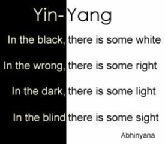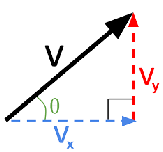


Philosophical musings on Quanta & Qualia; Materialism & Spiritualism; Science & Religion; Pragmatism & Idealism, etc.



 NEXT
NEXT
 BACK
BACK
Glossary Hints :
Glossary terms are indicated in the blog text by the dark blue color : BothAnd
A click on the linked term will take you to the glossary definition.
For more information on technical terms, go to the indicated links, both internal and external






GLOSSARY OF TECHNICAL TERMINOLOGY
|
Teleology :
Philosophical term derived from Greek: telos (end, goal, purpose, design, finality) and logos (reason, explanation). Philosophers, from Aristotle onward, assumed that everything in the world has a purpose and a place in the scheme of history. As a religious concept, it means that the world was designed by God for a specific reason, such as producing sentient beings to stroke His ego with worship & sacrifices.
1. In Enformationism theory, Evolution seems to be progressing from past to future in increments of Enformation. From the upward trend of increasing organization over time, we must conclude that the randomness of reality (Entropy) is offset by a constructive force (Enformy). This directional trajectory implies an ultimate goal or final state. What that end might be is unknown, but speculation abounds.
2. Teilhard de Chardin postulated that God created the world to evolve toward perfection, eventually to become god-like. He called that end-state the Omega Point.
3. In Chris Langan's CTMU theory, the term "unbounded Telesis" refers to the infinite creative power of God for "planned progress".
4. <<By "spirit" Montesquieu meant "causes" from which one could derive "laws" that govern [physics & societies] . . . The necessary relations derived from the nature of things.>> Shermer, The Moral Arc
[ see EnFormAction, Energy; see Vector diagram at left; see "Teleonomy" below: see Post 31 ]
|
|
Teleonomy :
Although evolution is obviously progressing in the direction of Time's Arrow, it is treated by Science as if it is wandering aimlessly in a field of possibilities limited only by natural laws and initial conditions. But philosophical observers over the centuries have inferred that evolution shows signs of rational design, purpose, and intention. Traditionally, that programmed progression has been called "Teleology" (future + reason), and was attributed to a divine agent.
Teleonomy (purpose + law) is another way of describing the appearance of goal-directed progress in nature, but it is imagined to be more like the step-by-step computations of a computer than the capricious interventions of a deity. Since the Enformationism thesis portrays the Creator more like a computer programmer than the Genesis wizard who creates with magic words (creatio via fiat), "Teleonomy" may be the more appropriate term to describe the creative process of a non-intervening deity. [ see Post 24 popup ]
https://en.wikipedia.org/wiki/Teleonomy
|


|
Virtual :
Traditionally, the term "virtual" meant possessing virtues or qualities apart from physical properties. In computer science, "virtual" refers to software apart from hardware. In Physics, "virtual" describes the mathematical or statistical state of a waveform in a field before it is actualized as a particle. A "virtual" particle is defined as . . . not a particle at all. It refers precisely to a disturbance in a field that is not a particle."
The term “Virtual” in physics is analogous to “Spiritual” in meta-physics. In the Enformationism theory, it is equivalent to Qualia, apart from Quanta. The Quantum Mechanics term "Virtual" is equivalent to "Potential" or "Ideal". For example, virtual particles are merely mathmatical definitions with no material instances, until they are Actualized by an observation. Similarly, in Ideality, a Platonic Form has no physical examples until Realized by an intention. In both cases, the will of a mind triggers the transition from nothing to something.
[ see Ideality ; see Quantum Field; see Virtual Particles at right ]
|
Virtual Particles :
Our reality is built of fields of potential (Enformation). In physics, the term “field” refers to an imaginary place in space where something happens. The things that interact in the field are called “virtual particles” because they are not real objects, but merely mathematical definitions equivalent to Platonic Forms.
The unreal state of VPs is called “super-position” because they have the potential to manifest in more than one form. Real wave/particles emerge when the VPs are enformed by an exchange of energy, which in Enformationism is equivalent to an act of Will.
“Last but not least… what is a particle anyway? In the best theory that we have, quantum field theory, a particle is neither an object nor a fundamental concept in the theory. The fundamental concept is the field; particles are its excitations.”
____Victor Toth, physicist

V = direction & extent of change
Vx = + force value
Vy = - force value
Θ = angle, ratio, relationship
When forces are equal (balanced) no change occurs
Vector Diagram
Causation, Direction, Power
Teleology Note :
The Greek philosophers were not idiots. They knew that the world was imperfect, and that sentient suffering was not ideal from a human perspective. But they assumed that both positive and negative aspects of the world had a place & purpose in the divine plan leading toward a perfect resolution.






 NEXT
NEXT
 BACK
BACK













 NEXT
NEXT
 BACK
BACK






